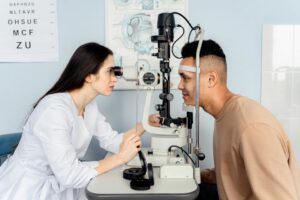Women are overburdened, we all know that don’t we. And, as women, we need to do something about it ourselves says Dr Samantha Graham. She has a great way of bringing the message to the masses by advocating the power of No for women at risk of chronic disease. Dr Graham is a writer of a provocative new play which you can catch at the Edinburgh Fringe this August. It spotlights the autoimmune disease epidemic among women. According to her, society’s excessive demands on women are to blame…
Her play ADAPTATION: ENOUGH ALREADY is set to make waves at the Edinburgh Fringe in August. The script presents five compelling reasons – highlighted through five autoimmune diseases – for why overextended women need to declare, “Enough already – that’s not my job.”
The power of No for women combatting chronic disease at Edinburgh Fringe
An innovative new gig theatre piece, set to create ripples at the Edinburgh Fringe in August, Adaptation: Enough Already – inspired by the work of trauma expert, Dr Gabor Maté – warns that we must radically reduce our society’s expectations on women, who as a result of the disproportionate levels of stress they face, now account for around 80% of all autoimmune disease cases.
Dr Samantha Graham, who wrote the emotive gig theatre piece, left a high-flying corporate training career to dedicate herself to gender-equity social change. She comments:
“Let this be a warning to women, particularly those of us over 45, who – combined with the joys of menopause – have the risk of these diseases looming large unless we change our ways. Dr Maté’s research, as outlined in his book The Myth of Normal (Chapter 23), suggests these diseases are not inevitable. In order to take ourselves off the current trajectory of incidence, we need to interrupt the status quo whereby women are socio-culturally trained to be all things to all people, to not complain, and to put ourselves second.”
The power of No women to help combat chronic disease
Here, Samantha outlines five autoimmune diseases that women who take on too much (especially aged 45+) are at risk of developing:
1. Rheumatoid arthritis (RA): a chronic inflammatory disorder that primarily affects the joints, leading to painful swelling and potential joint deformity. It is an autoimmune condition where the immune system mistakenly attacks the body’s own tissues, particularly the synovium, the lining of the membranes that surround the joints.
2. Lupus (systemic lupus erythematosus, SLE): a complex autoimmune disease that can affect multiple organ systems, including the skin, joints, kidneys, brain and other organs. Sufferers experience a wide range of symptoms such as fatigue, joint pain and skin rashes. The disease is characterised by periods of remission and flare-ups, where symptoms suddenly worsen.
3. Hashimoto’s Thyroiditis: an autoimmune disorder where the immune system attacks the thyroid gland, leading to an underactive thyroid. The condition causes symptoms like fatigue, weight gain, cold intolerance, and depression due to decreased thyroid hormone production. Diagnosis is typically made through blood tests showing elevated thyroid antibodies and abnormal thyroid hormone levels.Multiple 4. Sclerosis (MS): a chronic autoimmune disease that affects the central nervous system, specifically the brain and spinal cord, leading to a wide range of neurological symptoms. The disease often presents issues such as fatigue, difficulty walking, numbness and muscle weakness. MS is characterised by episodes of worsening symptoms (relapses) followed by periods of partial or complete recovery (remissions).
5. Psoriasis: an autoimmune skin condition that accelerates the growth cycle of skin cells, causing them to build up rapidly on the surface, forming scales and red patches that are often itchy and sometimes painful. Typical symptoms include dry, cracked skin that may bleed, thickened or ridged nails, and swollen and stiff joints.
Dr Samantha Graham concludes: “The epigenetic causes of these diseases are starting to get more recognition. It would appear that if women are able to put firmer boundaries in place and say no to work, that is not ours, at home or elsewhere, the incidence should decline. As infants, the tension between adaptation and authenticity can in most circumstances only lean towards adaptation. As adults however, we are obliged to unlearn that early conditioning and learn to express ourselves and our full range of needs, if we are to avoid ill-health. My play Adaptation: Enough Already explores these dynamics in an amazingly upbeat way, and with real emotive impact, aided by immersive projection and live original music.”
More about Adaptation: Enough Already
Dr Samantha Graham, formerly a CEO delivering corporate cultural change programs, recently turned to playwriting (and production) as a way to influence people more deeply. Adaptation: Enough Already is one of two plays she is taking to the Edinburgh Fringe (31 July – 24 August) inviting greater gender equity and a brighter and healthier future for everyone. More info & tickets.
How to make equality, diversity and inclusion the norm, and to address the gender workload issue too?












